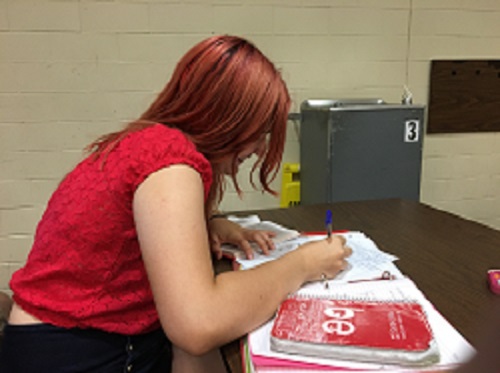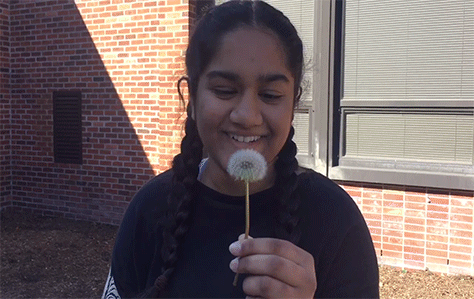Tips on studying for finals

Photo Credit: Githmie Goonatilleke
Some students have trouble studying for finals because of bad study methods.
June 9, 2016
Finals week is one of the most stressful times for students.
Part of that stress comes from poor study methods. Some students don’t start studying until days before their final exams and end up attempting to cram. Other students will start studying, get distracted and end up not using their time efficiently.
“I study by curling up in a ball and crying while taking a 10 minute break every hour to actually learn the information,” Julia Blando (’18) said.
According to Sukru Burc Eryilmaz, a student at Stanford University, students who cram for tests usually only pass with an average grade. Information that students learn through cramming usually ends up being forgotten. Cramming also creates stress, which will pile onto the additional stress of finals as a whole. To prevent cramming, students should learn to manage their time more wisely.
By learning to manage time, students will reduce stress and the temptation to cram information before a test. Learning time management skills early will also help students later in life.
Ways to start managing time include planning out the task at hand and learning to stop procrastinating. Students can also break big tasks into smaller, more manageable tasks. By breaking tasks apart, students can finish small tasks easily and work their way up to the big task at hand. Finally, students can make to-do lists to help remind them what tasks they need to accomplish. By managing their time efficiently, students will have more time to do activities they enjoy.
When studying, students should also minimize the amount of distractions around them. Students who are normally distracted by their phones should keep them away during the time that they are studying. Students can also download apps like Forest, an app that blocks the user from using their phone. Students should block distracting websites and social media on their laptops. By minimizing distractions, students will be able to attain focus and study more efficiently.
Another study tip is to listen to classical music. A research done by Stanford shows that “music engages the areas of the brain involved with paying attention.”
Although studying is important, it is equally important to take breaks. Taking breaks gives the student’s mind a rest and allows their brain to become more alert and productive. Studying for 50 minutes and taking 10 minute breaks is one way to efficiently use time. Another method is the Pomodoro Technique, which allows the student to work for 25 minutes, take a short 5 minute break, work for another 25 minutes, take a longer 15 minute break, and so on. The student’s time is split until they are done studying or finish the task as needed.



